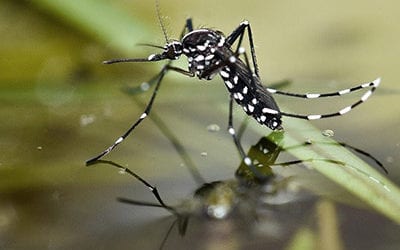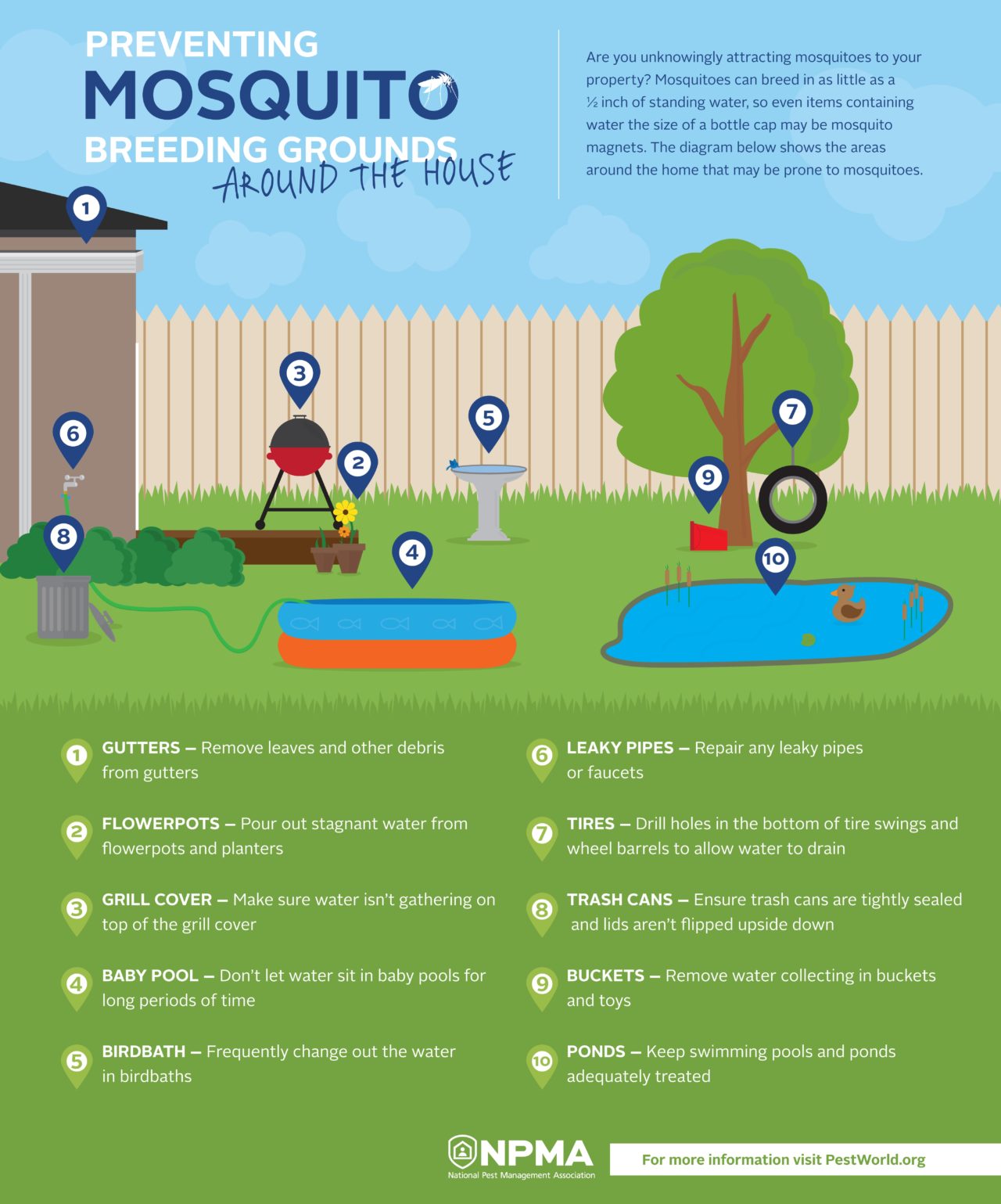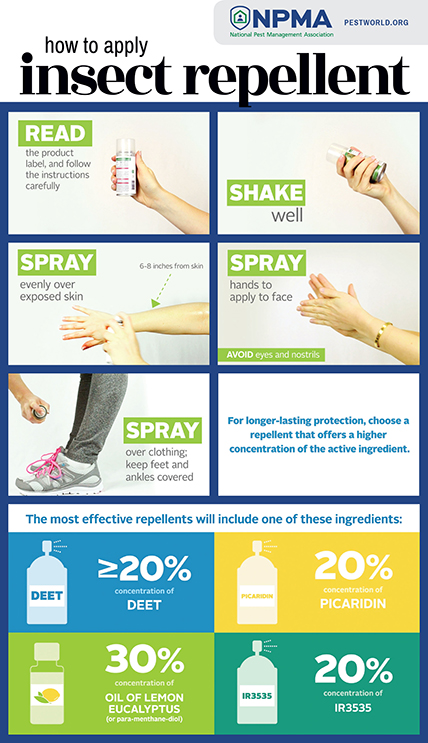“Bzzzzzzzzzz. SLAP!!!’ Everyone has experienced mosquito bites and some readers may have even been unfortunate enough to contract a mosquito-transmitted disease such as West Nile virus. Mosquito season is upon us once again, so here are some helpful facts about mosquitoes and what you can (and shouldn’t) do about them.
Soon, mosquito season will be in full swing and the pesky Asian tiger mosquitoes (ATM) as well as other species will be looking to set up living quarters in backyards everywhere. Show THEM that you are ready! Here are 10 Timely Tips to make it tougher for our blood-thirsty friends to invade and establish:
10 Timely Tips:
- Search thoroughly for and remove or cover anything that can hold water. Even a bottle cap can produce up to 100 mosquitoes.
- Remove, cover or drill holes in used tires. Drill so that water completely Do the same if you have a tire swing.
- Drill holes in the bottom of recycling containers. Ensure that lids for garbage cans are in good repair.
- Beware of items such as buckets, wheelbarrows and recycling containers that have a ‘lip’ when flipped over. The lip will collect water and organic matter, enough to welcome a new generation of mosquitoes in just 5-7 days.
- Clean clogged gutters and ensure they are draining properly.
- Check that all windows, screens and doors are tight-fitting and in good repair.
- Scrub birdbaths thoroughly with a brush, both now and throughout the mosquito season. Eggs of the Asian tiger mosquito can survive here for a year or more and will hatch when flooded.
- Cover in-ground drains with hardware cloth or treat them to prevent mosquito breeding.
- Fill in low-lying areas where water regularly collects and remains.
- Inspect and remove water from tarps or plastic used to cover items.
Mosquito species in our area
- There are about 3,600 different kinds (species) of mosquitoes worldwide. In the ‘bug world’, this is not a large number (there are about 30,000 kinds of beetles in the US alone) but mosquitoes are considered the deadliest animal on the planet. Why? There are approximately 750,000 human deaths from mosquito bites in the world every year!
- In the US, there are about 170 different species and, in the Midwest, each state has around 60. Most of these, however, will never bite people; instead, they prefer to feed on birds, large mammals, amphibians, and other creatures.
- The three most common ‘container breeders’ in the Midwest likely to be living in your yard and impacting your family are 1) the Asian tiger mosquito (Aedes albopictus), a black and white-striped species that bites primarily during the daytime; the Asian bush mosquito (Aedes japonicus), a daytime biter with black and white-stripes and a splash of gold right behind the head; and the common house mosquito (Culex pipiens), a plain brown species that bites primarily at dusk and in the later evening. This is also the kind of mosquito that might be interrupting your sleep indoors. All three of these species can spread specific viruses to humans, with the house mosquito the most involved in transmission of West Nile virus.
Public health threat and viruses
- Mosquitoes are of public health concern for three main reasons; 1) annoyance, 2) secondary infections, and 3) mosquito-transmitted diseases. Family gatherings, outdoor events (e.g. weddings), camping trips, ball games, etc., are frequently impacted negatively by the annoying presence of biting mosquitoes. And, have you ever had ONE pesky mosquito trying to bite you while you try and sleep? Miserable! Also, excessive scratching of bites (which kids WILL do) can lead to secondary infections.
Getting your yard ready for mosquito season
- All types of mosquitoes require water to breed in and complete their life cycle. Some prefer flooded roadside ditches or woodlands, others the edges of lakes and streams, and a select few are most at home ‘raising their family’ on residential and commercial properties, usually in some type of artificial container (hence, called ‘container breeders’) that is holding water (birdbaths, tarps, clogged gutters, tires, kids’ toys, etc.)
- One thing you CAN do to mitigate mosquito issues is to check your yard closely BEFORE the bloodsuckers arrive to remove any conducive conditions that may exist.
Risks of using over the counter products
- There is a wealth of false information and suggestions in the news, on the internet, on social media, and other places about how to avoid, repel, and otherwise control mosquitoes. However, there is absolutely no scientific evidence to support claims that things such as citronella candles, tiki torches, wrist bracelets, mosquito-repelling plants, bug zappers, and popular ‘home remedies’ will help with your mosquito problem. In fact, these, along with over-the-counter (or do-it-yourself) products can actually increase your risk by providing a false sense of security from mosquito bites. You can read more about this here: [Mosquito Control] Mosquito Mythbusting – Pest Control Technology (pctonline.com)
- Finally, when necessary or desired, consider using insect repellent. There are several safe active ingredients approved by our Environmental Protection Agency and there are multiple formulations available. For more information on insect repellents, including help on choosing one, click here: Repellents: Protection against Mosquitoes, Ticks and Other Arthropods | US EPA
Contact us link for a complimentary mosquito risk assessment!





